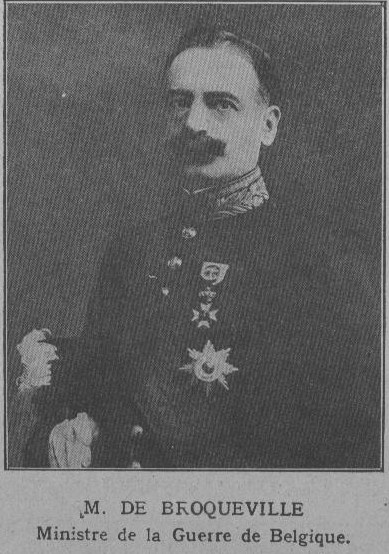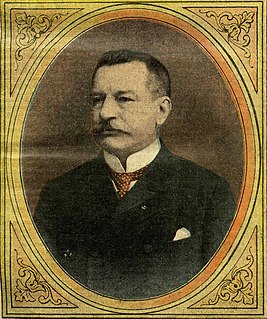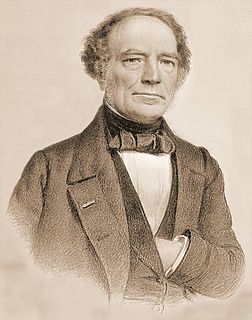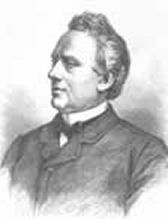| |||||||||||||||||||||||||||||||||||||||||
88 of the 186 seats in the Chamber of Representatives | |||||||||||||||||||||||||||||||||||||||||
|---|---|---|---|---|---|---|---|---|---|---|---|---|---|---|---|---|---|---|---|---|---|---|---|---|---|---|---|---|---|---|---|---|---|---|---|---|---|---|---|---|---|
| |||||||||||||||||||||||||||||||||||||||||
| |||||||||||||||||||||||||||||||||||||||||

Partial general elections were held in Belgium on 24 May 1914. [1] The result was a victory for the Catholic Party, which won 41 of the 88 seats up for election in the Chamber of Representatives. [2]

Belgium, officially the Kingdom of Belgium, is a country in Western Europe. It is bordered by the Netherlands to the north, Germany to the east, Luxembourg to the southeast, France to the southwest, and the North Sea to the northwest. It covers an area of 30,688 square kilometres (11,849 sq mi) and has a population of more than 11.4 million. The capital and largest city is Brussels; other major cities are Antwerp, Ghent, Charleroi and Liège.
The Catholic Party was established in 1869 as the Confessional Catholic Party.
Contents
The Catholics had formed the government continuously since 1884; the incumbent de Broqueville government was in office since 1911.
Under the alternating system, elections were only held in four out of the nine provinces: Hainaut, Limburg, Liège and East Flanders. This was the last time this system was applied, as the next elections in 1919 saw the introduction of full four-year terms.

Limburg is a province in Belgium. It is the easternmost of the five Dutch-speaking provinces that together form the Region of Flanders, one of the three main political and cultural sub-divisions of modern Belgium.
The elections occurred shortly before the outbreak of World War I. The newly elected legislature met for just one day in a special session: on 4 August 1914, when King Albert I addressed the United Chambers of Parliament upon the German invasion of Belgium. The parliament met again after the war in November 1918.

World War I, also known as the First World War or the Great War, was a global war originating in Europe that lasted from 28 July 1914 to 11 November 1918. Contemporaneously described as "the war to end all wars", it led to the mobilisation of more than 70 million military personnel, including 60 million Europeans, making it one of the largest wars in history. It is also one of the deadliest conflicts in history, with an estimated nine million combatants and seven million civilian deaths as a direct result of the war, while resulting genocides and the 1918 influenza pandemic caused another 50 to 100 million deaths worldwide.

Albert I reigned as the King of the Belgians from 1909 to 1934. This was an eventful period in the history of Belgium, which included the period of World War I (1914–1918), when 90 percent of Belgium was overrun, occupied, and ruled by the German Empire. Other crucial issues included the adoption of the Treaty of Versailles, the ruling of the Belgian Congo as an overseas possession of the Kingdom of Belgium along with the League of Nations mandate of Ruanda-Urundi, the reconstruction of Belgium following the war, and the first five years of the Great Depression (1929–1934). King Albert died in a mountaineering accident in eastern Belgium in 1934, at the age of 58, and he was succeeded by his son Leopold III.

The German invasion of Belgium was a military campaign which began on 4 August 1914. Earlier, on 24 July, the Belgian government had announced that if war came it would uphold its historic neutrality. The Belgian government mobilised its armed forces on 31 July and a state of heightened alert was proclaimed in Germany. On 2 August, the German government sent an ultimatum to Belgium, demanding passage through the country and German forces invaded Luxembourg. Two days later, the Belgian Government refused the demands and the British Government guaranteed military support to Belgium. The German government declared war on Belgium on 4 August, troops crossed the border and began the Battle of Liège.












